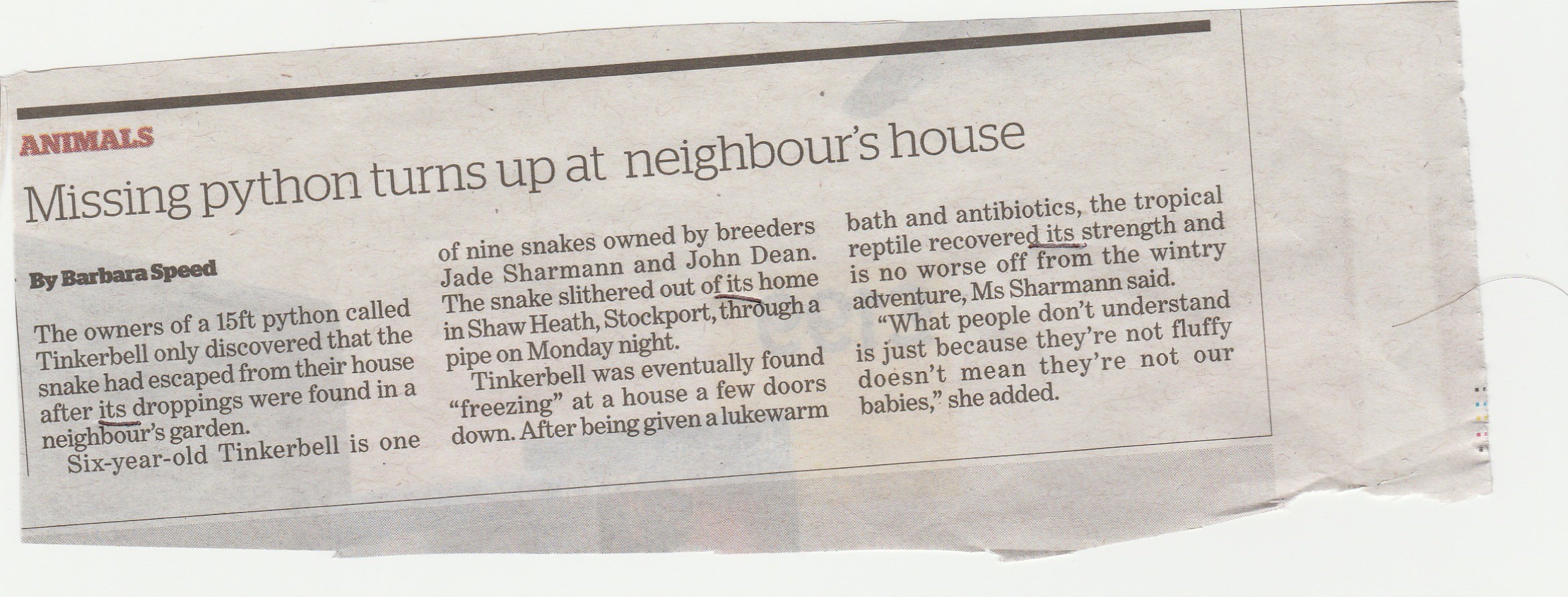 Sunday Times, November 26, 2017
Sunday Times, November 26, 2017
Ridiculous.
 Sunday Times, November 26, 2017
Sunday Times, November 26, 2017
Ridiculous.
 The Times, November 25, 2017
The Times, November 25, 2017
This heading should be ‘When Tony met Margaret’. Antony Armstrong-Jones met Princess Margaret in 1958. They married in 1960. He was granted an Earldom in 1961 and took the title Earl of Snowdon. I imagine many young subs will say, Well, that’s just a detail. Does it matter? Yes, it does. Older readers, and let’s face it, most newspaper readers are older these days, will know this heading is wrong, and it will reduce their confidence in the product. There seems to be a current attitude that near enough is good enough. This is not the case. Near enough will not do. It should be right.
 i newspaper, November 24, 2017 Page 3
i newspaper, November 24, 2017 Page 3
In general it is better to refer to animals as ‘it’ rather than ‘he’ or ‘she’, though some particularly cuddly creatures may merit a gender-specific pronoun. Reptiles, I would say (as a reptile fan), should always be ‘it’. However, if in your wisdom you have decided to call a snake ‘she’ . . .
 i newspaper, November 24, 2017 Page 15
i newspaper, November 24, 2017 Page 15
. . . then at least be consistent and call it ‘she’ in the full story.
 i newspaper, November 10, 2017
i newspaper, November 10, 2017
 Daily Telegraph, November 10, 2017
Daily Telegraph, November 10, 2017
Black-and-white proof that fools seldom differ. ‘Holy smoke’ is regularly trotted out on any story about the Pope, and it doesn’t improve with repetition. The i story is worse, with the silly line about the Pope saying ‘Just Say No’, which was the slogan of a US anti-drugs campaign several decades ago. Both faithfully repeat the Vatican comment that cigarettes damage the health of people – not giraffes or parrots, then. I can guarantee that the Vatican would not complain if the quote were cut to ‘clearly damages health’.
 i newspaper, November 10, 2017
i newspaper, November 10, 2017
Another hoary old cliche. It would have been better give more detail in the heading eg
Elvis’s divorce documents
expected to fetch £25,000
 i newspaper, November 10, 2017
i newspaper, November 10, 2017
Headlines should be in present tense if at all possible. The copy makes it clear that the woman is still active, so ‘scaled’ should be ‘scales’.
 i newspaper, November 10, 2017
i newspaper, November 10, 2017
This is not so much a subbing issue as a question of editorial judgment. How on earth can you use this story without this sensational picture:

The Times, November 10, 2017
It’s an agency picture so the i would have had access to it.
Incidentally, ‘vertebra’ is the singular, ‘vertebrae’ is the plural used incorrectly here.
 Daily Telegraph, November 10, 2017
Daily Telegraph, November 10, 2017
I find this ignorance contemptuous and almost offensive. Two separate phrases have been run together. It should read
In Memoriam
‘Their name liveth for evermore’
(the inscription chosen by Rudyard Kipling for war memorials).
If I had placed this poignant notice and found it appeared under such a careless heading, I would feel insulted.
 Daily Telegraph, November 10, 2017
Daily Telegraph, November 10, 2017
A basic requirement of a sub-editor is that there should be some connection between the brain and the fingers. Anyone tapping out ‘a third of men still live with their parents’ should think, ‘Hang on, that can’t be right.’ As the copy makes clear, it is men in the 20-34 age group. You have to concentrate on what you are doing.

Daily Telegraph, November 10, 2017
They’ll be telling us the world is round next. This might have been a usable headline 20 or 30 years ago, but the fact that plastics pollute the seas is no longer news. You could try:
10pc of dolphins
have eaten plastic
 The Times, November 10, 2017
The Times, November 10, 2017
(23 words) Lovely picture, but the whole point is that these are the autumn colours for which New England is renowned. You don’t need to say that maples are trees. And ‘Scenic root’? Pathetic.
I would put:
Falling leaves: Thousands of maples display their autumn colours beside the Kancamagus Highway, one of the renowned New England fall foliage drives (22 words)